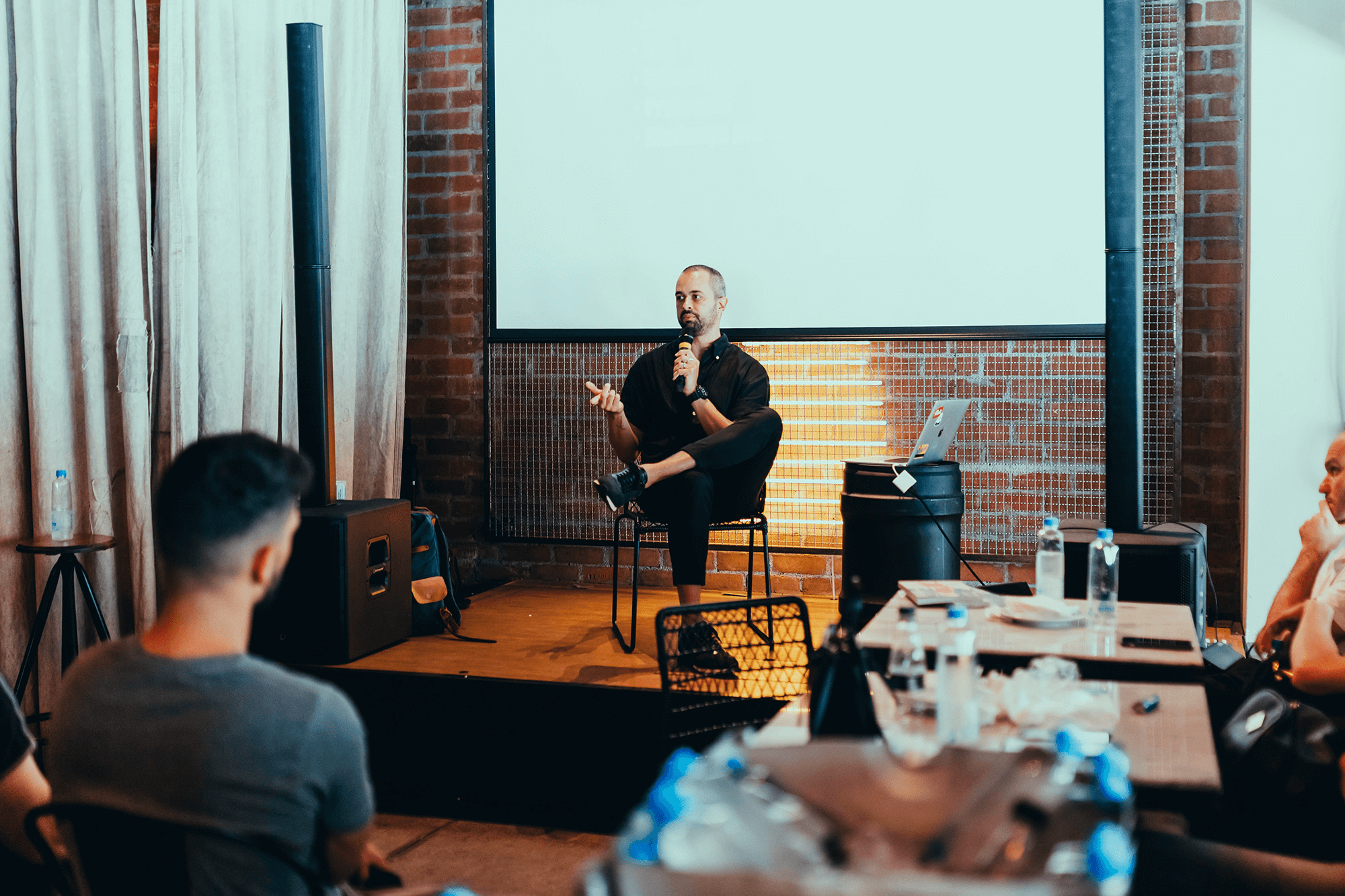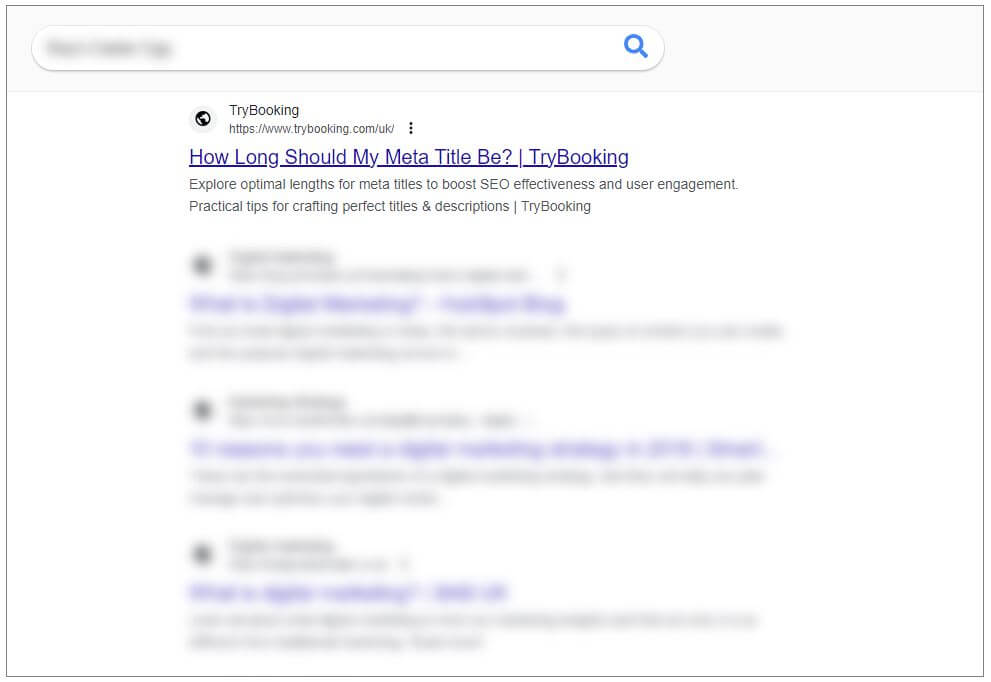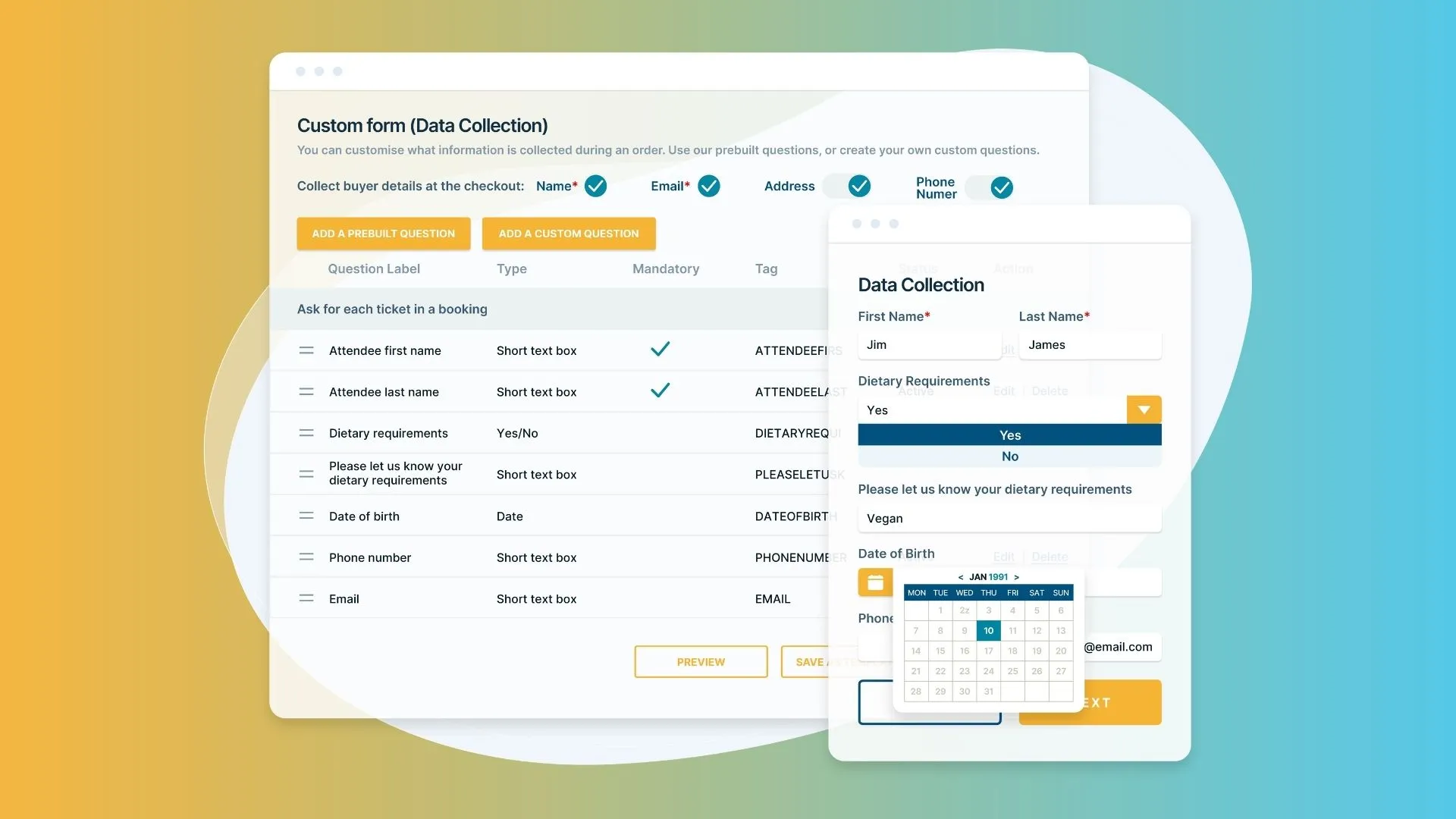Using SEO To Promote Your Event: A Comprehensive Guide
It's more important than ever to make your events stand out on the internet. Learn how to make the most of search engine optimisation with these tips from our event experts.
At TryBooking, we understand events. Since 2014, we’ve helped event organisers make sure their events are successful time and time again; we’ve seen what makes them great and identified the best ways to market them.
So far in our series on How to Market Your Event, we’ve talked about marketing your event on social media platforms such as Facebook, Instagram and YouTube, helping you to promote your events to the widest audience possible.
Whilst social media marketing plays an important role in promoting your event online, we can’t forget about its humbler companion – your events website. With most people using online search to find everything they need, ensuring your website stands out online is not just an advantage; it’s a necessity.
Ensuring your website is easy to find and, once they’re there, easy to navigate, will inevitably help drive ticket sales, bookings and enquiries – for example, you could put a booking widget on your website homepage to help drive ticket purchasers. This makes it an invaluable tool in making your events not only successful but profitable too.
But whilst it’s easier than ever to create a sparkling new website, there’s absolutely no point in wasting time making a website that won’t be easy to find. This is where search engine optimisation (SEO) comes in.
Read our beginners guide below to make sure your events website is set up correctly, has the right SEO in place and other hints and tips to make sure the digital marketing of your next event is working hard for you.
What is SEO?
SEO stands for search engine optimisation. It’s all about making sure your online presence has the right signals in place to ensure that search engines, such as Google or Bing, can find your events when people search online.
We’ve heard SEO described as a dark art. And whilst it may seem daunting at first, leveraging it effectively is vital to ensure you can drive online success.
At its core, SEO involves optimising your website content so search engine algorithms rank your content highly when a user searches for a certain keyword. For example, if you’re running a music festival in Slough, you’ll want your page to be served up to people in the surrounding areas who are searching search terms related to festivals.
Over 90% of online searches are carried out on Google, and many other platforms (such as smart speakers) use this information as their data source. So if you’re running a charity fundraiser in the summer and these events are your bread and butter, you’ll want to be ranked highly to make it easy for potential customers to find you.

How To Use SEO For Event Marketing
- 1. Do your keyword research
- 2. Optimise your website
- 3. Implement meta data
- 4. Carry out competitor analysis
- 5. Create relevant, engaging content
- 6. Use calls to action
- 7. Consider your wider marketing strategy
- 8. Use Google's search tools
- 9. Use social media platforms
- 10. Use a third party ticketing site
1. Do your keyword research
Keyword research is about understanding what people are searching for online, what words and phrases do they use and in what combinations. The relevance of the keyword terms used in your campaigns will directly influence their success.
You might want to consider keyword research before you begin event planning as it could help define what locations are most popular, what interests’ people have and when people are searching for particular types of events.
Keyword research is a vital part of your paid media strategy. Knowing what words and phrases have the highest search volume, and which variations are the most used will inform your meta information (see below), your content planning and maybe even the name of your event. DO NOT UNDERSTIMATE THE POWER OF KEYWORD RESEARCH!
There are a wide range of keyword research platforms including;
- SEM Rush (free with limits)
- SE Ranking (paid)
- Moz (paid)
- Ahrefs (free)
- Google Suggest (free)
- Google Search Console (free)
- Keyword Planner via Google Ads (free)
If you are planning significant marketing campaigns around your events, using a paid keyword research tool will be well worth it. Alternatively, the Google tools are available through free Google services and are useful either in conjunction with bespoke keyword platforms or as limited resources by themselves.
2. Optimise your website
When people search online for something, they’ll often either search through their browser’s search engine or social media channels. We often see event organisers using one or the other; but for the best results, we’d recommend setting up both to capture the most interest.
When it comes to your website, the search engine algorithms will compare your site against a set of key metrics. In addition to the technical SEO set up on your website, these indicators tell search engines what your website is about and how relevant it is to a search query.
Key metrics measured by Google (the largest search engine) include meta information, website content, page loading speed, user experience (UX) and user interface (UI). These factors all form part of what’s known as an authority ranking, which search engines use to compare your site to competitors.
It is possible to improve your ranking by looking at the following elements.
- Meta titles and meta descriptions – these are the titles shown in browser tabs and the short description search on the search engine results page (SERP).
- Your content – use your keyword research to identify important phrases to naturally include within your content, and in what combinations.
- Page load times and scroll depth – make sure that your webpages are responsive and that they don’t scroll endlessly as users will lose interest. You can test page load times using Google’s PageSpeed Insights tool.
- Mobile useability – in the events sector, the majority of people looking for events online will be using their mobile devices. Ensuring that your website looks just as slick on a mobile as it does on a desktop is essential and will help your authority.
- Errors, warnings and notices – these are SEO issues flagged as problematic with your website. They could be things like pages not linked to anything – orphaned pages – or 404 errors where the page link doesn’t exist. Making sure as many of these as possible are resolved will stand you in the best stead with search engines.
- User interface (UI) and user experience (UX) – what the site looks and feels like as well as how people interact with it, the user interface, is important to building site authority. User experience refers to the overall experience the user has when navigating to and through the website.
All these actions help boost your pages ‘organic visibility’, boosting your sites authority within Google and other search engines. What’s more, a lot of these metrics are things you’ll already be considering as part of your website, helping you to showcase your events and drive ticket sales.
3. Implement meta data
Meta data, often overlooked, is one of the most important parts of your SEO. It includes the page title and page description attributed to each page on your website.
Your meta title should be short and concise, containing the most important key words relating to your page. Your meta description should provide a more detailed summary of the content on the page and include a call-to-action (CTA) encouraging users to click on the page. This ensures that your pages are indexed properly by search engines and can be found easily online.
There are length limits on both meta titles and meta descriptions - you can use tools like Meta Length Checker to see if your meta titles or descriptions are too long from a pixel perspective.

4. Carry out competitor analysis
The best way to get the edge over your competitors’ events is to understand more about their events in the first place, and to use the information to boost your SEO.
Your competitors online might not be those you think they are, but carrying out in-depth analysis of your industry and the keywords related to it will show you who are the highest performing in your event sector which will serve as a guide for what to aim for.
Reverse engineering, using specialist SEO programmes mentioned previously, can help you identify what your online competitors are ranking for, how their website is performing overall, and identifying keyword gaps which are opportunities for your events.
5. Create relevant, engaging content
Many people believe that writing website content involves writing about yourself. But in reality, search engines such as Google reward websites that position themselves as experts in their fields, preferring to rank sites which have a wide breadth and depth of related content.
Your content can take the form of blogs, or as on-page content. Blogs can be a great way to increase your keyword density and are better if you’re writing around your subject as they can be longer and more dynamic. On-page content should be limited to around 300 words and contain relevant keywords to that page. Every page should aim to have keyword-focused content on it.
For example, if you are organising food events, you could write about food trends, dietary requirements, recipes, top tips, chef profiles, event write-ups, cuisine types and more to help you build authority from a search engine point of view. You’ll be rewarded with better rankings as you produce more and more content about your field of expertise.
It is worth noting that Google can take up to 6 months to index content appropriately, longer for new websites, so don’t expect your rankings to increase overnight. The longer your website is online and the more you update it with fresh, relevant content, the better long-term ranking success you’ll have.
6. Use calls to action
Your website will ultimately have an end goal. Whether that’s encouraging them to book tickets through your ticketing provider or prompting traders to enquire about stalls, it’s important to signpost users to what you want from them.
Calls to action, or CTAs, are usually links. They are buttons or forms on your website that require your visitors to complete an action. They could be BOOK NOW buttons for tickets, ENQUIRE HERE for trade stalls, or CONTACT US.
Whether you are looking for ticket sales on your site, people to register their interest in advance or enquiries for more information, having clear, easy to find and easy to use directions to your chosen CTAs will mean your website is acting as a sales tool and helping your users through this sales funnel.
If you don’t have a call to action on a page, it’s more likely that the user will just return back to their search rather than engaging further with your website.
Make sure you have a call to action on every page to let users know what you want them to do!

7. Consider your wider marketing strategy
SEO often works hand-in-hand as part of a wider marketing strategy. Before you jump into creating a website, think about your objectives and what you want to achieve.
Think about your marketing budget and what you can and cannot afford to do. Talk to professionals about the best ways to achieve your goals. If your target audience is older, or doesn’t tend to access content online, there’s little point in setting up a website and using SEO.
If the audience you want to appeal to is younger, consider what else you can do to complement your website. This might include social media marketing, paid media marketing and email marketing. When using other types of digital marketing, make sure you’re signposting people back to the relevant webpages on your site and track your site performance.
This will let you know what is working, what is not and where other opportunities might lie.
8. Use Google's search tools
Google Search Console and Google Analytics are free Google applications that are designed to show you a broad range of user data for your website. Google Search Console lets you request indexing for your webpages which then asks Google to look through them and rank them accordingly.
It also lets you see data such as impressions (how many times your website is seen in search results), clicks to your site, average page ranking positions and individual page positions, where your traffic comes from geographically and how and which keywords perform.
In contrast, Google Analytics looks at user acquisition and behaviour such as where your website visitors have come from, where they’ve been before and where they go after, how they convert, and which referral channels produce these conversions.
These two programs complement each other and give helpful insights into your potential guest behaviour; an essential part of understanding how to successfully market your events to them online.
9. Use social media platforms
Changes to your website is referred to as on-page SEO. Other channels that send traffic to your website are a form of off-page SEO.
These include social media sites such as Instagram, Facebook, YouTube, Snapchat, TikTok and X (formerly Twitter).
Social media is great for converting some audiences, but each channel has a slightly different demographic. Keeping your social channels updated with content is a good idea but if you are working on a wider marketing strategy, you’re more likely to convert people from your website that your socials, generally speaking.

10. Use a third-party ticketing site
Other off-page SEO includes third party websites. For event organisers these might be online booking platforms such as TryBooking, or any other third-party websites that are selling your event tickets for you.
Ticketing platforms will have much higher authority than your own website, so any links between your website and theirs will do wonders for building your site authority and helping to improve your ranking.
Your ticketing platform will often also give you additional features to manage and improve your SEO. For example, you may want to embed a booking page on your website directly, or track ticket purchases by linking to your Google Analytics.
A third-party ticketing website can also help your event achieve a Google Event Pack, which we’ll discuss shortly.
Using paid media for your events
When carefully monitored and nurtured, the steps above will help your organic visibility immensely and ensure your website has long term success. However, it’s important to remember that it does take a long time to build authority in the first place.
If you’re looking to increase brand awareness and drive event bookings, paid media can help massively in the short term if you have the budget available. Check out our blog on how to market your events with Google for more information on how to navigate the world of Google Ads, pay-per-click ads and other paid media tools.
Google Events Pack
If you follow the steps above carefully, then you’ll have a much better chance of getting your events listed on the Google Event Pack. This Google feature is when you search for event-related keywords and Google serves you up a directory of events near you or your chosen location arranged chronologically on a special SERP (search engine results page).
So long as your website has enough information about the event, including the date, times, locations, booking links, keyword content about the event and industry, it’s likely that Google will use this information to create an Event Pack.
Having your Google event listing appear above the organic search results will give you a much better chance of putting your event in front of more people as these SERPs will get more impressions that individual websites, no matter how good your SEO setup is.
To log this information on your website, you can use a plugin for your CMS (content management system), such as WordPress. Alternatively, if you have an okay understanding of HTML, you can enter the structured data directly into your websites HTML code.
Our final tips
Getting started with SEO can be a bit of a long game, but it’s worth it for your website and events in the long term.
🔎 Don’t underestimate the power of keyword and competir research.
✍️ Content is king: make yourself an expert on the topics featured on your website.
⏰ It’ll take time: don’t be surprised if you don’t see results for a few months.
If you’re looking to ticket your next event, TryBooking has a range of features available to boost your search presence. These include:
- Event tracking via Facebook Pixel, TikTok Pixel and Google Analytics
- Booking widgets that all for your events to be partially or fully integrated into your website
- Integrates with Google’s Event Pack to help event discoverability
Want to get started with your next event? Create your event today, or book a demo with one of our event specialists who’ll show you the best way to market your event using our handy event promotion features.

Unlocking the Power of Seat Holds and Password Protect for Seamless Event Management
Feb 20, 2024 · 1 min read
Using Google Ads to Market Your Event: Everything You Need To Know
Feb 06, 2024 · 1 min read
You might also like

How to Guide: Take Payments For A Bake Sale With TryBooking
Mar 05, 2025 · 1 min read
Introducing TryBooking Box Office App Tap to Pay on Phone
Apr 01, 2024 · 1 min read
How To Market Your Event
Jan 15, 2024 · 1 min read
How To Run An Event In 2024 - Everything You Need To Know
Jan 03, 2024 · 1 min read
How to boost your branded event page
Sep 29, 2023 · 1 min read
125 Unique & Fun Event Ideas For Your Next Event
Mar 20, 2023 · 1 min read
How to Create an Event Program
Mar 13, 2023 · 1 min read
10 Corporate Event Ideas To Ignite Some Fun At Your Office Party
Mar 17, 2023 · 1 min read
5 Ways To Spruce Up Your Event
Sep 27, 2022 · 1 min read
How to Plan a High School Reunion
Apr 05, 2023 · 4 min read
Yoga Classes Come In Many Forms 🧘♂️
Mar 11, 2022 · 1 min read
How to customise your Homepage?
Aug 20, 2020 · 1 min read
How to Create the Perfect Registration Form Template?
May 11, 2023 · 1 min read
Small business events; Planning, Budgeting, Promoting and Action!
Apr 11, 2017 · 1 min read
How to email your ticket buyers?
Apr 10, 2017 · 1 min read
Why event insurance is important
Apr 04, 2017 · 2 min read
How to plan a successful conference or business event?
Oct 13, 2016 · 4 min read
Learn how schools are using TryBooking to manage events
Feb 23, 2016 · 3 min read
How sporting clubs use TryBooking?
Feb 16, 2016 · 2 min read
The facts about online ticketing that make the difference
Jan 21, 2016 · 2 min read
What else can you use TryBooking for?
Dec 15, 2015 · 2 min read






